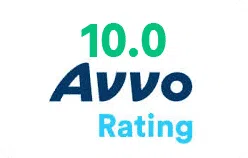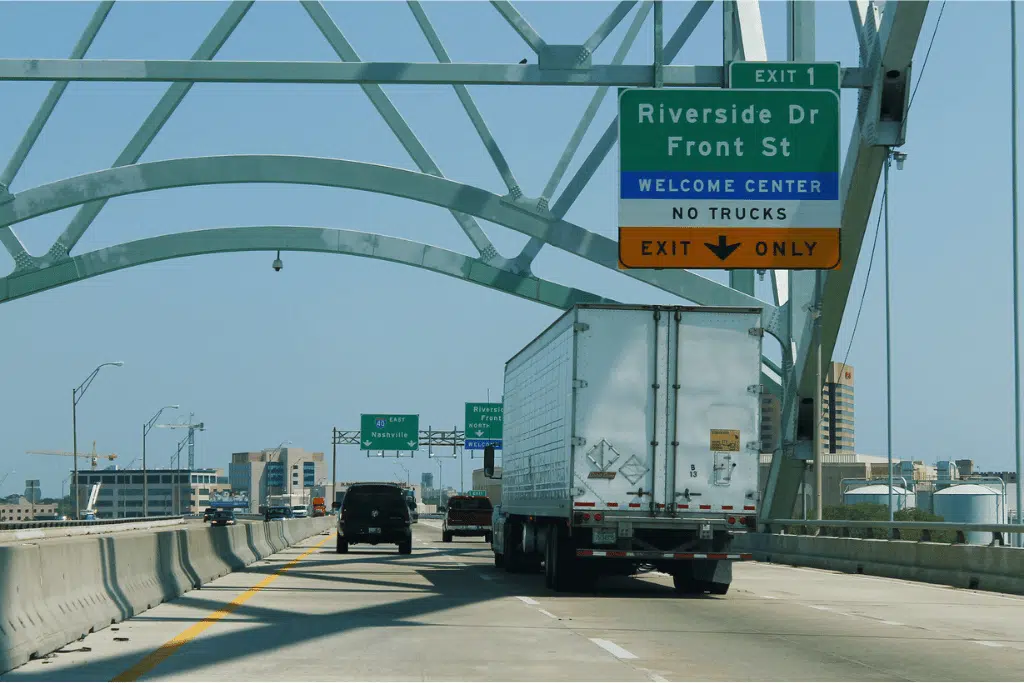
Memphis Truck Accident Lawyers

At NST Law, we are dedicated to helping injured individuals and their families get the justice and compensation they deserve.


Expertise
Mr. Trotz has handled injury cases involving auto accidents, slip and fall, premises liability, and negligent security. Every day, Mr. Trotz represents those who have been injured and many of his clients have sustained traumatic and life-altering injuries.
Have you recently been injured in a collision with a large truck in Memphis, Tennessee? You may have the right to recover compensation for your medical treatment, lost income and suffering. The experienced Memphis truck accident attorneys at NST Law will fight to maximize your financial recovery.
Since 1990, we’ve been advocating on behalf of truck accident victims and grieving families in Memphis and across the South. Our attorneys are nationally recognized for their commitment to our clients and ability to achieve top results in truck accident cases. We have won more than $2 billion in settlements and verdicts for our clients.
Put yourself in the best position to win your truck accident case. Benefit from 30+ years of experience and a team that’s not afraid to take on powerful trucking companies and insurance adjusters to get the results you deserve. Your first consultation is free, so don’t hesitate to reach out to our Memphis personal injury attorneys to schedule yours today.
- Why Should I Hire a Personal Injury Lawyer if I’m Injured in a Truck Accident in Memphis, Tennessee?
- Damages Available to Truck Accident Victims in Tennessee
- Is There a Time Limit for Filing a Truck Accident Lawsuit in Memphis, Tennessee?
- How Common Are Truck Accidents in Tennessee?
- What Causes Most Memphis Truck Accidents?
- Where Do Most Truck Accidents Occur in Shelby County?
- Cell Phone Laws in Tennessee
- Establishing Liability for a Truck Accident in Memphis, Tennessee
- What if My Loved One Was Killed in a Truck Accident?
- Truck Accident Victims Tend to Suffer Life-changing, Catastrophic Injuries
- Trusted Memphis Truck Accident Lawyers Ready to Fight for You
- Testimonials from Our Memphis Clients
- Our Memphis Truck Accident Lawyers
Why Should I Hire a Personal Injury Lawyer if I'm Injured in a Truck Accident in Memphis, Tennessee?
Large commercial trucks can be over 50 feet long and weigh up to 80,000 pounds. They’re difficult to navigate and don’t stop on a dime. Any mistake can cause a devastating accident, and the occupants of smaller vehicles usually suffer the consequences.
Often, negligent truck drivers and trucking companies are responsible for causing these accidents. As a victim, you may have the right to hold them accountable and recover compensation. However, getting money in your hands is easier said than done. You’ll face resistance every step of the way.
That’s where our truck accident law firm in Memphis can help.
At NST Law, we have a reputation for being fierce, unrelenting advocates for our clients. We don’t stop until the people we represent are heard and compensated for their losses.
When you choose to trust us with your truck accident case, we will:
- Help you secure the medical treatment and ongoing care you need as you recover from your injuries
- Handle your personal injury claim from start to finish so that you can focus on getting better
- Oversee an independent investigation into your truck accident to determine the cause(s) and who’s at fault
- Gather evidence, including accident reports, pre- and post-trip inspection reports, vehicle maintenance and inspection logs, data from the truck’s black box, hiring records and policies, proof of FMCSA violations, medical records, photographs, witness statements, physical evidence from the scene and other information relevant to your case
- Consult with leading experts on truck accidents and related trauma
- Negotiate with insurance companies, freight companies and other parties on your behalf
- Prepare your case as if it’s going to trial in the event that a settlement is not reached
Our truck accident attorneys in Memphis will be there to offer guidance and support throughout the process. We’ll help you make difficult decisions and work toward securing the best possible outcome for your case. We have two Memphis locations to serve you, one conveniently located off of Poplar Avenue and one in Whitehaven.
Our Recent Truck Accident Settlements & Verdicts
Our commitment to our clients shows in the compassionate care and personalized service we offer to each one. We will even come to you if you cannot come to us. Our successful results for our deserving clients are the direct outcome of the work ethic we apply to every case:
- $6.3 million for the family of a 65-year-old man who died in a truck accident
- $3 million for a married couple in a catastrophic tractor-trailer wreck
- $2,700,000 for a 33-year-old woman who suffered catastrophic injuries in a four-vehicle wreck
- $1,000,000 for a pedestrian struck by a cement truck
Damages Available to Truck Accident Victims in Tennessee
A car accident involving a truck can leave victims struggling physically, emotionally and financially. Fortunately, Tennessee law provides victims with the right to seek damages to compensate for these (and other) consequences.
Two types of damages can typically be awarded: compensatory and punitive.
Compensatory damages fall into one of two categories, economic and non-economic. Economic damages offset the financial and monetary losses associated with a truck accident, while non-economic damages make up for the pain and suffering and life changes that typically accompany an accident of this magnitude.
Examples include:
- Hospitalization, medical transportation, surgery and other current medical expenses
- Ongoing medical treatment, rehabilitation and future medical bills
- Medical devices and equipment
- Temporary disability
- Permanent disability
- Lost wages and benefits
- Property damage
- Other out-of-pocket costs
- Chronic physical pain
- Reduced quality of life
- Depression and anxiety
- Post-traumatic stress disorder
- Disfigurement and scarring
- Loss of consortium
Punitive damages are awarded for the sole purpose of punishing a defendant for conduct that is particularly reprehensible. To be applicable, there must be clear and convincing evidence the defendant acted maliciously, intentionally, fraudulently or recklessly. For example, punitive damages can be pursued in a truck accident caused by a drunk driver.
Our Memphis truck accident attorneys will enlist the help of qualified and respected experts as we build your case. They can provide critical insight into the more complicated or technical aspects of your case, which can allow us to fully understand the scope and impact of your injuries.
Investing this time and leveraging these resources will help us enter negotiations or trial prepared to secure a full and favorable settlement on your behalf.
What if I am partly at fault for the accident?
Tennessee is a modified comparative fault state, which means that you can receive compensation for your injuries as long as your share of the fault is less than 50 percent. However, your compensation will be adjusted in proportion to your share of the fault.
Is there a time limit for filing a truck accident lawsuit in Memphis, Tennessee?
Yes. You’ll typically have just one year to file a personal injury lawsuit after a truck accident in Tennessee.
There may be a limited number of exceptions to this rule. However, once the Tennessee statute of limitations that applies to your case expires, so does your right to file a claim and recover compensation.
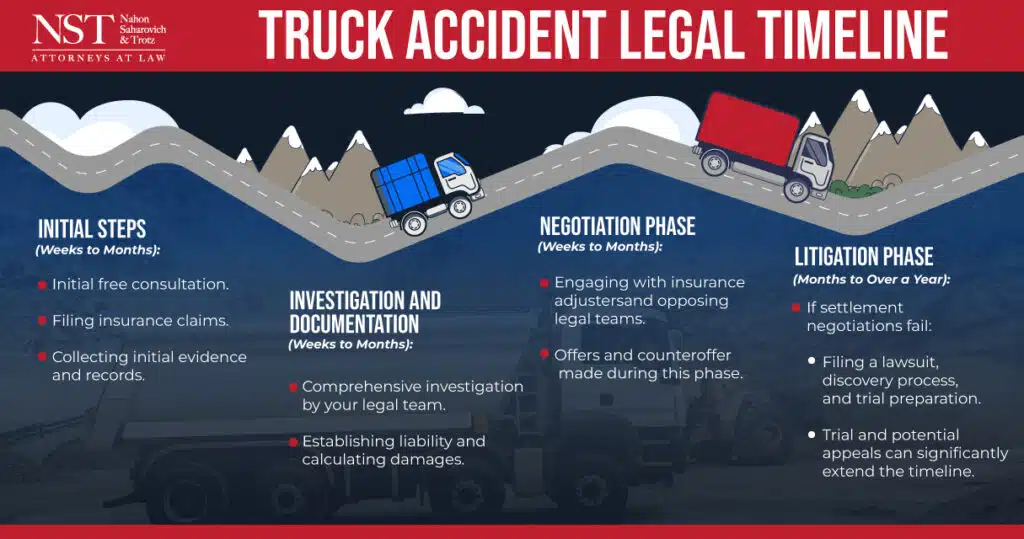
How Common Are Truck Accidents in Tennessee?
According to the Tennessee Department of Safety and Homeland Security, there were 13,066 reported truck accidents across the state in 2024. At least 1,908 truck accidents occurred in Shelby County in 2024 alone, and 1,825 of these occurred in urban areas.
That’s one truck accident in Tennessee every 43 minutes. At least six of the truck accidents reported in 2020 were fatal.
A staggering one-third of all of the Volunteer State’s truck accidents happened on an interstate, such as I-40 and I-240, which run right through the heart of Memphis.
What Causes Most Memphis Truck Accidents?
Truck accidents in Memphis are almost entirely avoidable. They shouldn’t happen.
Why?
Truck drivers must have a commercial driver’s license — and necessary endorsements — to drive a rig. Trucking companies have a responsibility to screen, hire and train qualified drivers. The trucking industry is heavily regulated by Tennessee state law and the Federal Motor Carrier Safety Administration (FMCSA). Plus, everyone on the road has an obligation to exercise reasonable care.
When a truck accident does occur, it’s usually the result of human error or negligence. Common causes of tractor-trailer and big-rig accidents include:
- Speeding or driving too fast for road conditions
- Driving while under the influence of drugs or alcohol
- Driver fatigue or falling asleep at the wheel, which may be associated with a violation of the FMCSA’s hours of service regulations
- Following improperly
- Unsafe turns
- Driving in a truck’s blind spot
- Unsafe cargo loads
- Cargo shifts
- Overloading
- Tire blowouts
- Negligent hiring and supervision
- Failure to perform required inspections and maintenance
- Failure to take malfunctioning or defective trucks out of service
Other factors, including rain and bad weather conditions, defective trucks and equipment, and truck driver inexperience, can also contribute to collisions involving semis and large commercial trucks.
Where Do Most Truck Accidents Occur in Shelby County?
The majority of trucking accidents occur at intersections, municipal roads, and interstates.
A safety analytics company has rated two Memphis intersections among the five most dangerous areas in the United States for commercial drivers using cell phones:
- Lamar Avenue and Holmes Road
- South Lauderdale Street and Mallory Avenue (near the FedEx hub)
Overall, the company rated the Memphis area as the eighth-worst in the nation for drivers using handheld cell phones.
Other dangerous intersections include the following:
- Poplar Avenue and Ridgeway Road
- East Shelby Drive and Getwell
- East Shelby Drive and Lamar
- Winchester Road and Hacks Cross Road
- Summer Avenue and Sycamore View
- Union Avenue and McLean
- I-40 and Canada Road
- I-40 and Chambers Chapel
Additionally, drivers in Memphis should exercise additional caution anytime they are using the I-40/I-240 loop, Union Avenue, Poplar Avenue, East Parkway, and South Parkway.
Cell Phone Laws in Tennessee
Shelby County drivers experienced 1,466 accidents because of cell phone use in 2020. Tennessee law prohibits drivers from holding cell phones, texting, reading text messages or recording videos while driving. Talking on cell phones is permitted via hands-free technology only.
Commercial truck drivers are also subject to federal law prohibiting handheld cell phone use by commercial vehicle drivers. The Federal Motor Carrier Safety Administration (FMCSA) passed this law in response to studies that showed cell phone use by commercial drivers created a six-fold increase in accident and near-accident risk.
Establishing Liability for a Truck Accident in Memphis, Tennessee
Most truck accident cases in Tennessee occur due to negligence.
In the simplest terms, this means that someone owed you a duty of care, breached it and caused you to get hurt and suffer damages.
Under Tennessee state law, anyone who contributes to a truck accident — directly or indirectly — can be liable for resulting harm.
This might include:
Memphis Truck Drivers
All interstate commercial truck drivers are required to follow detailed FMCSA regulations. These regulations include rules related to logbooks of hours driven, hours of service and rest breaks, maintenance, and loading a truck, among other matters.
Given the critical importance of these regulations, recent developments, such as the requirement for truck drivers to demonstrate proficiency in English, have raised concerns about safety on the roads. A lack of effective communication between truck drivers and other road users can significantly contribute to accidents. For more on how English proficiency for truck drivers is crucial for road safety, read our blog post on the recent April 2025 executive order.
In some states, if a driver breaks a rule designed to protect public safety, the violation itself gives rise to a rebuttable presumption of negligence without needing to prove the duty and breach of duty elements of the claim.
Memphis Trucking Companies
A trucking company may be held vicariously liable if an employee driver injures others in the course and scope of employment. This means that the trucking company is indirectly responsible and may be required to pay damages if the driver is found negligent. A trucking company may also be directly liable if its own negligence was the cause of an accident.
For example, trucking companies are required to determine that the drivers they put on the road to operate a big rig are competent to drive these vehicles in all sorts of situations. They must conduct background checks and ensure that drivers are appropriately trained. If a driver has a DUI in their background or multiple accidents, these should be red flags to the trucking company. A trucking company that ignores red flags or encourages drivers to violate hours of service or other FMCSA regulations may be held liable for negligent hiring, training or supervision.
Memphis Vehicle Manufacturers
Truck accidents may also be a result of equipment malfunctions or defective vehicles. In some cases, it may be appropriate to sue a parts manufacturer, vehicle manufacturer or another company responsible for designing or selling a defective component.
Memphis Truck Loaders
Some truck accidents occur when cargo is improperly loaded or secured. Our firm can retain accident reconstruction experts to evaluate whether a truck’s brakes failed or the weight was unevenly distributed, thereby causing the accident. In these situations, the party responsible for loading the vehicle may share liability.
Memphis Negligent Third-Party Motorists
It’s not just truck drivers who cause trucking accidents. Sometimes other motorists on the road, including drivers of passenger vehicles and motorcyclists, can be negligent and contribute to a wreck. In some situations, bicyclists or pedestrians may be liable for contributing to a large truck crash, too.
Government Agencies
Government agencies are typically immune from liability in civil personal injury cases. However, if there’s evidence that an agency or worker was negligent and contributed to a truck accident, they may be held financially accountable. Government liability may extend to situations involving defective road design or inadequate road maintenance.
The attorneys at NST Law will carefully assess the circumstances of your truck accident case and aggressively pursue damages from anyone who shares fault for your injuries.
What if My Loved One Was Killed in a Truck Accident?
In the tragic event that a beloved family member passes away in a car accident, the immediate family is entitled to file a wrongful death claim. A wrongful death action can be filed by the personal representative (usually the executor of the estate), the surviving spouse, or if there is no surviving spouse, by the children or next of kin.
Families are entitled to claim the same economic, non-economic and punitive damages that would have been available to the deceased had death not ensued, plus the following:
- Funeral and burial expenses
- The mental and physical suffering of the family
- Loss of time
- Loss of consortium (husband and wife)
- Loss of parental guidance
- Pecuniary losses – the total financial losses associated with the death, including lost income and inheritance
Wrongful death damages are subject to the same limits as personal injury damages.
Truck Accident Victims Tend to Suffer Life-changing, Catastrophic Injuries
Whether you’re involved in a truck rollover, jackknife accident, wide-turn accident, or another type of collision involving a large commercial vehicle, the consequences can be catastrophic. NST Law will be there to help you pick up the pieces and seek compensation for all of your resulting injuries and trauma.
Contact us for assistance if you’ve suffered:
- Traumatic brain injury
- Spinal cord injury
- Neck injury
- Back injury
- Paralysis
- Broken bones and fractures
- Nerve damage
- Burn injury
- Crushing injury
- Amputation
- Wrongful death of a loved one
Be sure to seek medical treatment as soon as you can after your large truck crash. This will help to keep you safe and limit the risk of complications. It will also support a future legal claim for damages. The visit and accompanying medical records will help to establish a causal link between the crash and your injuries, which you’ll need to build a successful negligence case.
Trusted Memphis Truck Accident Lawyers Ready to Fight for You
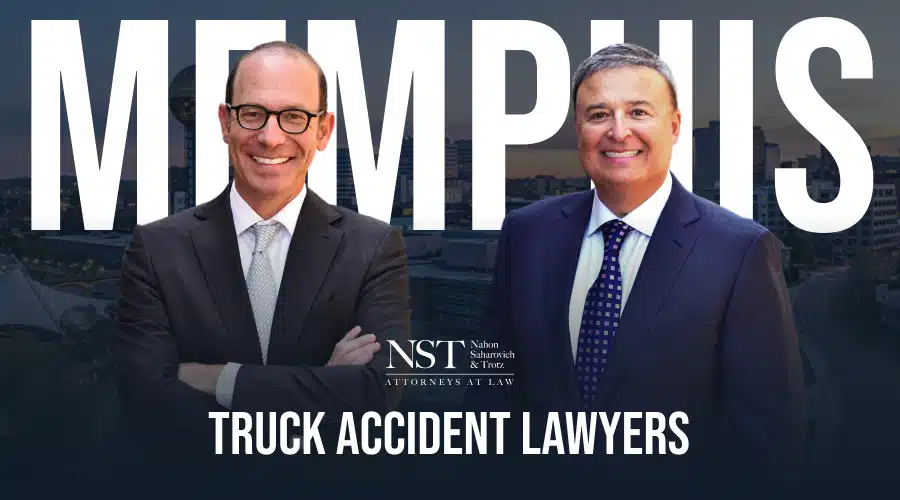
Not all Memphis personal injury attorneys are familiar with the regulations governing the trucking industry and the process of gathering evidence in these complex cases. It is important to secure legal representation from attorneys who have experience in this area of the law.
If you have been struck by a careless commercial driver, the Memphis truck accident attorneys at NST Law can evaluate your case and devise a strategy to pursue damages to which you are legally entitled.
We are dedicated to providing exceptional legal representation to injury victims in every neighborhood of the city. Between our two office locations, we are able to provide services in East Memphis, Lenox, Central Gardens, Downtown, New Pathways, Binghampton, Hayden Place, Frayser, Berclair, Germantown, Parkway Village, Oakville, Nonconnah, and South Memphis.
Call the champs today at 800-529-4004 or complete our online form to set up a free consultation with an attorney. With all of our resources and experience at your disposal, NST Law is the way to go.
Testimonials from Our Memphis Clients
NST worked hard on our case and I would recommend them to anyone who needs a personal injury lawyer.
I suffered two broken ribs, a concussion and a neck and back injury due to reckless driver that was lane jumping on I40 West. He hit me twice causing me to flip end over end several times. I was taken directly to the med by ambulance. I start accumulating medical bills immediately. The ambulance bill alone was two thousand dollars. NST took my case immediately. They have a methodical approach to working and kept me informed of how the case was progressing. They are very experienced at what they do and got me a satisfactory settlement. I highly recommend them if you need a personal injury lawyer.
Our Memphis Truck Accident Lawyers
Founding Member – Senior Partner
Phone: (901) 683-7000
Attorney
Phone: (901) 683-7000
Attorney
Phone: (901) 683-7000
Founding Member – Senior Partner
Phone: (901) 683-7000
Attorney
Phone: (901) 683-7000
Attorney
Phone: (901) 683-7000
Founding Member – Senior Partner
Phone: (731) 427-5550
Attorney
Phone: (731) 427-5550
Attorney
Phone: (731) 427-5550
Founding Member – Senior Partner
Phone: (731) 427-5550
Attorney
Phone: (865) 684-1000
Attorney
Phone: (731) 427-5550
Attorney
Phone: (731) 427-5550
Attorney
Phone: (731) 427-5550
Attorney
Phone: (731) 427-5550
Attorney
Phone: (731) 427-5550
Attorney
Phone: (865) 684-1000
Attorney
Phone: (731) 427-5550
Attorney
Phone: (731) 427-5550
Attorney
Phone: (731) 427-5550
Attorney
Phone: (731) 427-5550
Attorney
Phone: (731) 427-5550
Attorney
Phone: (731) 427-5550
Attorney
Phone: (731) 427-5550
Attorney
Phone: (731) 427-5550
Attorney
Phone: (731) 427-5550
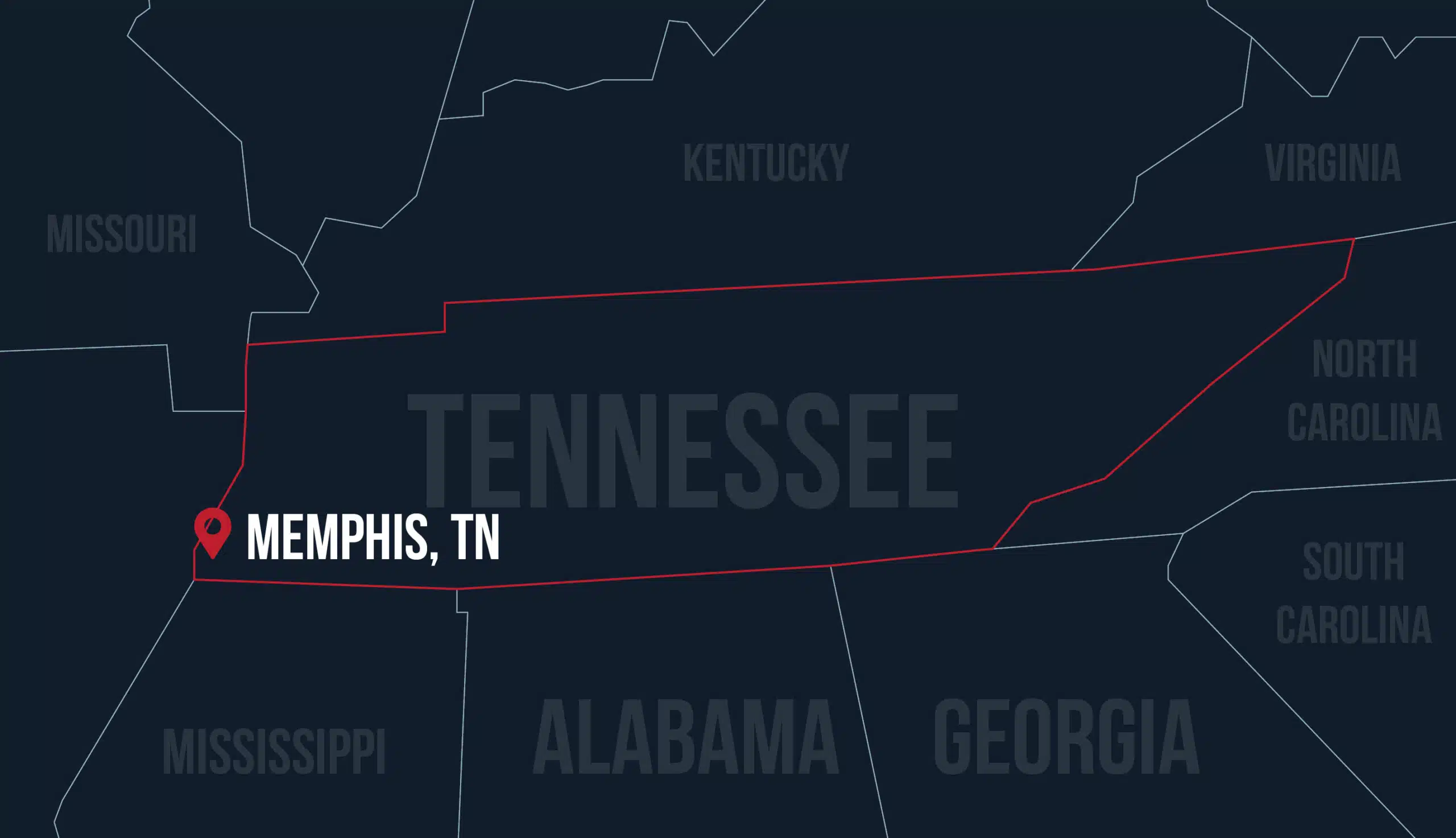
 Skip to content
Skip to content



